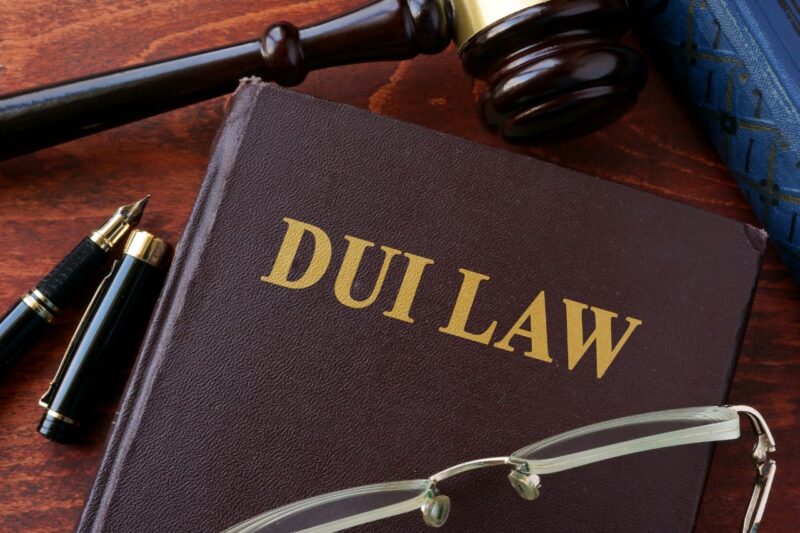DUI charges are serious, even if the offense is a misdemeanor. The label of “driving under the influence” can accompany you for years, hampering your efforts to get a job or a loan or even find housing.
Have you recently been charged with driving under the influence? Are you wondering if there’s a way to lessen the negative impact this will have on your future?
We want to help. Keep reading to learn more about how to remove a DUI charge from your record.
DUI Overview
A DUI can have lasting consequences. So unfortunately, you cannot simply have it removed from your criminal record, no matter your circumstances.
Depending on the severity of the DUI, you may have your license suspended or revoked. Courts can put you on probation or even serve time in prison. And depending on the state, a DUI may stay on your criminal record for up to 10 years or indefinitely.
This means that you will have to go through a complicated and lengthy process to have your DUI removed. Each state has different rules and laws regarding removing a DUI from your record.
In most cases, you may have your DUI removed from your driving record through a process known as expungement.
Expunging Your DUI
Expungement works by taking the record of the charge off your criminal history. This is so employers and other entities may not know the charge when performing a background check. The expungement process typically involves petitioning the court for relief and can vary from state to state.
Remember, if a court grants you expungement, it does not necessarily mean the charge did not happen. Instead, it can mean that certain information related to the charge, such as the conviction, cannot be disclosed.
How Do You Apply to Expunge Your DUI?
The process to apply to expunge a DUI is simple. But you may need to hire a lawyer to help you with the paperwork and eligibility requirements.
Generally, you’ll need to file a petition for expungement and an Order of Expungement with the court. You’ll also need to provide evidence to show that you have resolved the DUI. You also need to prove that the conviction is preventing you from gaining employment or housing.
The court may require you to request character reference letters from employers, family, or community members. Some courts may need you to pay a fine or undergo various treatment programs. After the court reviews the paperwork, a hearing may be necessary before they grant you expungement.
It’s important to remember that a DUI expungement is not guaranteed. So you should consult a lawyer to discuss your specific situation and the odds of success.
What Kind of Lawyer Can Help You With Expunging Your Record?
You will need a lawyer specializing in expungement and criminal law or a DUI lawyer with record expungement experience. Your lawyer should be able to advise you on the best course of action to take to clear your record. They should be familiar with all the legal requirements in your state: how long the process takes and what documents you need.
They can help ensure that you complete all the paperwork accurately. They will contact any appropriate party on your behalf. And they will provide legal advice regarding removing this criminal charge from your record.
A lawyer will then assist you in developing a strategy to mount a successful defense. They should be able to help you prepare for court by making sure all evidence is strongly presented. And they should take steps to limit any possible consequences of expungement.
Having experienced legal counsel when it comes to expunging a DUI from your record is essential. So if you need help finding the best DUI Lawyer to help you with your record, click here and schedule a consultation.
Alternatives to Expunging a DUI From Your Record
Specific alternatives to expunging a DUI from your record may be available. It depends on where you live.
In some states, you may be eligible for a DUI diversion program. This will allow you to complete a program to address the issue and can result in dismissed or reduced charges.
In other states, you may be able to get a “Criminal Record Restriction.” This will limit who can see or access the fact you were ever charged.
In addition, most employers and licensing agencies look beyond the criminal record. Instead, they assess the character and moral qualifications of the person. This is an excellent way to realize that you shouldn’t let the stigma of a DUI define you but take action to make changes for the better.
The Pros and Cons of Removing Your DUI
When it comes to weighing the pros and cons of removing a DUI from your record, it is essential to consider both sides of the issue.
On the one hand, removing a DUI from your record can allow you to regain control over your life. You will eventually become a more productive member of society.
On the other hand, it can be difficult and expensive to do so. And the DUI will still appear on your criminal record.
The process of removing the DUI may require you to pay fines. You might need to complete an alcohol education program. Or the state might require you to attend psychological counseling sessions. It depends on the severity of your offense.
Ultimately, it is crucial to weigh the costs and benefits carefully. Removing a DUI from your record is no small task.
It’s Possible to Remove a Dui, but It Takes Time
A DUI charge is serious and has significant consequences. Removing a DUI from your record is possible if you take the proper steps.
So if you have been charged with a DUI, the best thing to do is seek out professional legal help. They will help ensure that you follow the legal processes required to remove a DUI.
Start now to get the process underway. Take the first steps to move on with your life.
Was this article helpful? If so, check out the rest of the posts on our blog now.










